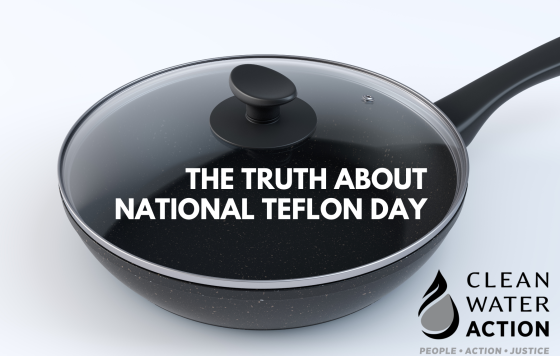
It has been a year since the Biden Administration announced its Justice40 executive order. Justice40 is an unprecedented commitment to federal investment in environmental justice (EJ) initiatives. Importantly, funding has been specifically earmarked to ensure that “disadvantaged” communities have improved access to clean water, clean air, and other basic needs.
The Environmental Protection Agency (EPA) has identified three water programs as “pilot projects” for the Justice40 initiative. The Water Infrastructure Improvements for the Nation (WIIN) Act, and State Revolving Funds (SRF) for Drinking Water and Clean Water are opportunities to strategically put Justice40 to work to address critical water pollution and drinking water needs. There have been a number of challenges during the first year of the Biden administration, including the ongoing COVID-19 pandemic, but the Administration has found relative success with Justice40.
In hopes of accelerating progress with the initiative, 21 federal programs have been identified to serve as pilots for Justice40, including those aforementioned water-related programs. Thus far, it has been somewhat slow-going as the unique challenges that are associated with remediating decades of neglect and subjugation require concerted and meaningful attention. Furthermore, many federal agencies, such as EPA, continue to operate at funding levels that make it difficult to fully implement basic agency priorities; this pushes Justice40 even further to the background. When combined with the intricacies of solving environmental justice problems, tangible outcomes from Justice40 have been hard to come by so far. But slow progress does not necessarily indicate a failure. Instead it represents an area of investment to keep an eye on and apply pressure as needed.
Systems including, but not limited to, transportation, development, and energy have had disproportionate impacts in communities based primarily on social categories of difference. Justice40 gives people the opportunity to take action to address environmental injustice. Financial commitments from the Administration can make a real impact in improving access to clean water, lack of which is often a result of systemic neglect and unequal impact. EPA estimates that there are at least 9 million lead service lines remaining in our drinking water distribution systems. Where they are present, these lead pipes are the largest source of lead in drinking water and it is a big environmental justice issue. It is time to put their use behind us. The Clean Water State Revolving Fund (CWSRF) and Drinking Water State Revolving Fund (DWSRF), two existing programs that have been strategically placed as pilots under Justice40, can help to deal with lead and similar water/water-infrastructure-related problems. They are also of particular importance to those concerned with other water issues. Funding from these SRFs is needed for filling existing gaps in bandwidth and agency priorities and also for addressing critical environmental justice problems associated with clean water. Lead service lines, inconsistent water monitoring, and placement of “dirty” facilities, are some of the environmental justice problems that either the CWSRF, DWSRF, or a combination of the two can help to alleviate. Justice40 pushes these initiatives to be undertaken in communities that, through histories of marginalization and divestment, have some of the greatest need. State representatives, with their constituents best health interests at heart, can use Justice40 as a vessel to solve clean water problems.
Clean Water Action is particularly interested in the water-related Justice40 pilot projects given our focus on water pollution and drinking water issues. We will continue to engage with EPA to ensure that Justice40 goals are well-defined and that they promote equitable and effective use of ambitious new investments.
Justice40 is not perfect. Its primary challenges remain consistent with that of environmental justice issues more broadly: they are multifaceted, interconnected, and complicated. Environmental justice challenges constitute those that intersect a variety of facets of everyday life and greater systems of socio political governance. However, it is an opportunity to take these challenges on, knowing that the financial and federal support is there to begin remediating America's history of exploitation of places and people. For example, the new Bipartisan Infrastructure Investment and Jobs Act includes $15 billion over 5 years in Drinking Water SRF funds dedicated to full lead service line replacement. A Justice40 approach can ensure that these funds highlight environmental justice communities as a priority.
We can remain optimistic that Justice40 will get the ball rolling for environmental justice to take center stage at the federal level. Renewed and new interest in social and environmental justice initiatives, especially those interests that are supported by economic and political investment, set us up to remediate environmental harms and mitigate future ones. For these reasons, Justice40 is one federal initiative to keep an eye on.



